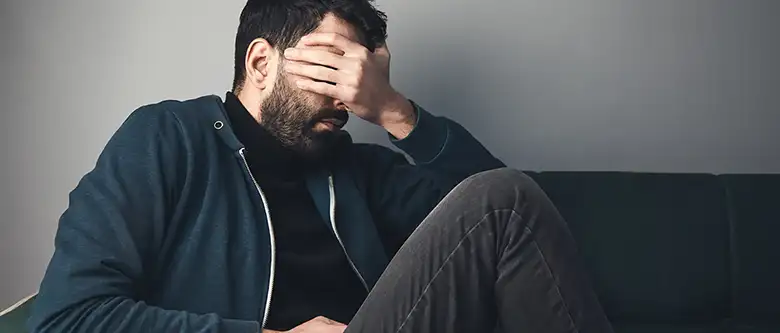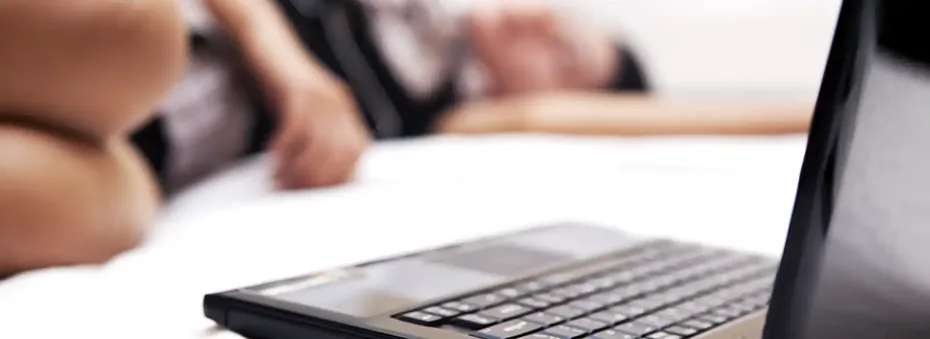
Table of Contents

Struggling with porn addiction can feel pretty isolating. Fortunately, there are real solutions out there. From online recovery communities to confidential hotlines, plenty of resources are available to guide you. Sometimes, you just have to take that first step toward healing. Wherever you start, just know you’re not alone. Real change is possible with the right help.
Key Porn Addiction Resources
Overcoming a pornography addiction can start with the right resources. Some resources offer confidential support and guidance, while others connect you with therapy or an online community.
Helplines and Support Hotlines
When everything feels too heavy to manage on your own, speaking to someone who understands can make all the difference. If you want immediate help, calling a helpline is a solid first step. The SAMHSA National Helpline is confidential, available 24/7, and accessible in both English and Spanish.
Trained staff can answer questions, give information, and refer you to local support. This is especially handy if you’re not ready for therapy but need someone to talk to. It’s free, doesn’t require insurance or ID, and you can call about your own concerns or those of someone else.
Specialized Therapy and Counseling Services
Therapy can be a game-changer if pornography use is harming your life, relationships, and mental health. Licensed therapists help you manage urges and work through triggers with proven methods like cognitive behavioral therapy.
You can choose individual therapy for a one-on-one setting or group therapy to connect with others going through similar struggles. Whether in person or online, therapy is a powerful tool in developing accountability, setting clear boundaries, and healing at the root level.
Online Support Communities
For many people, just knowing they’re not alone brings a deep sense of relief. Online support communities allow you to connect with others who understand what you’re going through. Many of these are free and focus on compassion, advice, and shared experiences.
Groups might include forums, group chats, daily check-ins, or educational courses. Some communities are big on privacy, so you don’t have to share personal details if you’re not ready.
Certain programs offer digital meeting spaces, resources, and recovery courses for porn and sexual addiction.
Educational Tools and Self-Help Materials for Addiction Recovery
There’s a whole world of self-directed resources to help you understand your behaviors and start building better habits. Books, online learning, and other educational tools can make recovery feel less overwhelming.
Books and Workbooks for Recovery
Many find that the right written guidance helps them make sense of their experience and take concrete steps toward healing. As such, books and workbooks offer structured plans and real stories. They often include exercises to help you spot triggers, change habits, and stay accountable.
Workbooks with checklists and reflection questions can be especially helpful. They break recovery into bite-sized steps, with daily practice prompts that can be especially effective in promoting mindfulness and long-term change.
Most of these resources are available in both print and digital formats, so you can engage with them privately, at your own pace, in a way that fits your life.
Webinars and Online Courses
If you’re looking for something more interactive, webinars and online courses are a flexible way to get expert advice. Many people also utilise these digital tools for privacy and convenience. Topics usually cover understanding addiction, building willpower, and handling urges.
Through digital solutions, you can join live sessions, ask questions, or watch recordings at your convenience. Some courses have video lessons, worksheets, and support forums to help you stay motivated and manage the symptoms of porn addiction on your own.

Technology Solutions for Pornography Addiction Recovery
Technology can be a real ally when you’re trying to manage and track your progress. There are apps for self-monitoring and software to block triggering content.
Apps and Digital Tracking Tools
If you’re struggling with addiction to pornography, Several apps exist to help you track habits, set goals, and stay accountable. Using these apps can help you log urges, note triggers, and see how long you’ve gone without slipping up.
Some apps even include daily check-ins, reminders, or community features. Others integrate with therapy or offer motivational messages. Tech can fill the gaps between therapy sessions, and these tools help you see patterns and keep your recovery organized.
Website Blockers and Filtering Software
When it comes to internet pornography, accessibility can be one of the biggest challenges in recovery. That is where website blockers and filtering software come in. They block specific sites or types of content, making it harder to slip up.
Many blockers come with password protection or need a friend’s help to change settings. Some track blocked attempts, so you can see when you tried to access restricted content. Filtering software can even cover all your devices, so you’re not leaving any back doors open.
These digital safeguards are not a cure, but they are a powerful part of a comprehensive treatment plan. Putting these digital barriers in place can make it easier to overcome issues related to pornography addiction.
Professional Treatment Options and Peer Support Networks
Healing from compulsive sexual behaviors is about understanding the pain beneath it. The right help can bring both relief and hope.
Certified Addiction Specialists
Certified addiction specialists are trained to treat addictive behaviors, including problematic porn use. You might work with a counselor, psychologist, or psychiatrist who’s experienced in addiction recovery.
These experts can create a treatment plan tailored to you and help you develop better coping skills. They use evidence-based methods like cognitive behavioral therapy (CBT) and might offer family or individual counseling.
Working with a professional means you can talk openly in private. Some people also benefit from group therapy led by a certified specialist. These professionals can also help set clear boundaries, reduce impulsivity, and guide you through the recovery process step by step.

12-Step and Group Recovery Programs
12-step programs like Sex Addicts Anonymous (SAA) or Sexaholics Anonymous (SA) are all about group support and shared experiences. Available in person and online, these groups provide a safe space for you to connect with others who understand.
These peer support networks are founded on shared experiences, mutual accountability, and the conviction that no one should recover alone. Many people find these groups to be great resources for rebuilding trust and overcoming urges.
There are also non-12-step groups that focus on peer support without a spiritual framework. Sometimes, listening can be a powerful first step, and these support groups offer just that.
Find Trusted Help for Porn Addiction Recovery
Finding the right support for porn addiction can help you slowly heal. There are trusted professionals and programs that can guide you through recovery. Start by exploring trusted providers who offer personalized treatment in a safe, non-judgmental environment. With the right support, recovery is within reach.
Frequently Asked Questions
What are the signs of pornography addiction?
Some signs include spending a lot of time watching porn, feeling unable to stop even when you want to, or ignoring other responsibilities and hobbies. You might feel upset, anxious, or guilty afterwards.
How can therapy help in overcoming porn addiction?
Therapy helps you understand why you turn to pornography and how it affects your life. Talking with a counselor gives you the space to learn new ways to cope with stress and triggers. Therapists often use evidence-based treatments to guide you through recovery.
Are there any support groups for individuals struggling with pornography addiction?
Support groups allow you to connect with others who have been through a similar experience. They offer a safe space to share and learn strategies for managing urges. Options include in-person and online groups.
What strategies can be used to cope with urges and prevent a relapse?
Setting clear boundaries, avoiding triggers, and building healthy routines can all help. Reaching out for support when you feel urges makes a real difference. Some people use techniques like distraction, mindfulness, or writing down their thoughts.
How does porn addiction affect personal relationships and how can this be addressed?
Porn addiction can lead to secrecy, loss of trust, and hurt feelings in relationships. Open communication, honesty, and sometimes couples counseling can help repair things. Support for both you and your loved ones is important. It’s not always easy, but it’s possible to rebuild.
What are the long-term recovery options for someone dealing with porn addiction?
Long-term recovery plans usually involve ongoing therapy and showing up at support groups. Building a support system is also important, although that can be easier said than done. Keeping up with healthy habits and checking in with a counselor can help keep things on track.








































